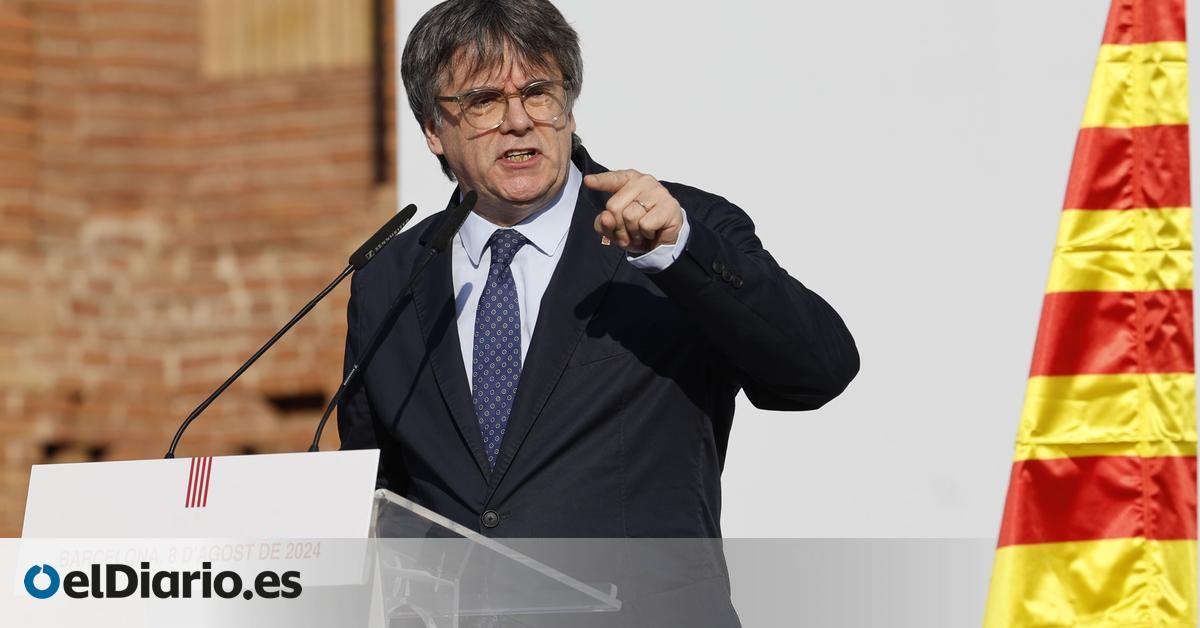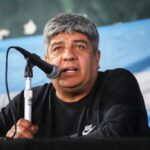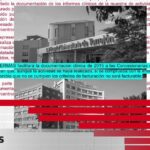
The application of the amnesty to the process by the courts has been as or more complex than its political negotiation. Half a year after the rule came into force, judges have applied it unevenly and, at times, slowly. There are loud exclusions, such as that of Carles Puigdemont, and even cases that the courts have yet to resolve despite the fact that the law gave them two months to do so.
In case the picture lacks complexity, the amnesty law has yet to undergo a decisive examination before the Constitutional Court and the Court of Justice of the European Union (CJEU). Between both instances there are a total of 22 challenges against the amnesty law. The first appeals in the Constitutional Court will be resolved in 2025, although the two preliminary rulings registered before the court based in Luxembourg could be delayed to the following year.
The six months with the rule in force have left some legal situations that sometimes clash with the predictability that the courts of Justice are supposed to have. The misappropriation of public funds for the process has been amnesty by two Barcelona judges in relation to three former senior officials of Convergència, but it has been explicitly excluded from the amnesty by the Supreme Court for Puigdemont and the convicted former ministers.
To this must be added an unequal application depending on the court and, in many cases, at idle. The majority of judges practicing in Catalonia decided within the period conferred by the amnesty law, but there are cases that have not been amnestied until this month of December, such as the Girona firefighters accused of collaborating with 1-O. Other rejections of the amnesty, such as that of a computer scientist who faces a request for 18 years in prison, were decided in November.
There are even two sensitive amnesties for the sovereign world that have not been denied or granted, but half a year later they are still immersed in a procedural tangle over which judge should resolve them. This is the case of the thirty former senior officials, businessmen and officials accused of 1-O and the five members of the Electoral Sindicatura of October 1.
According to the latest assessment carried out by the anti-repressive organization Alerta Solidària, after six months with the rule in force, the amnesty has been granted to 195 people, 96 of them police officers investigated for the 1-O charges. Another 84 are protesters or activists prosecuted for riots, while 15 are former politicians or former senior officials.
The forecast of the Prosecutor’s Office before the entry into force of the rule indicated that the law would affect 486 people. Although from this calculation we must subtract the twenty people formerly investigated in Tsunami Democràtic and the Russian plot, the two cases of two of the judges who most opposed the norm, Manuel García Castellón and Joaquín Aguirre, and which were archived due to errors by the magistrates without needing to apply the rule.
One of the last charges to be amnestied was, on December 5, the former sports secretary of the Generalitat Gerard Figueras. He was investigated in Barcelona for embezzlement for having allocated public funds to 1-O expenses, such as mailing envelopes and ballots. The judge granted him amnesty when she found that he used these public funds “with the intention of seeking the independence of Catalonia, without evidence of personal enrichment.”
Despite dealing with expenses with the same objective (the process), the interpretation that the Supreme Court made to not grant amnesty to Puigdemont and the former councilors was opposite, considering that there was personal enrichment because the leaders did not cover the expenses out of their own pockets. An interpretation that for the first time broke the unanimity that the High Court had until then maintained in relation to the process.
The result was the exclusion from the amnesty of the leader of Junts, Carles Puigdemont, and that of ERC, Oriol Junqueras. Seven years after the sovereigntist autumn, both continue to lead their parties, but the Supreme Court has for now frustrated the objective of forgetting the criminal cases to channel the sovereigntist debate on exclusively political grounds.
Another 28 protesters have had their requests for amnesty rejected as the protests for which they were prosecuted were not linked to the process, while 23 politicians or former high-ranking officials have not been amnestied either, according to Alerta Solidària’s calculations.
The debate in the Constitutional Court and the CJEU
The Constitutional Court does not have a deadline to resolve appeals against the amnesty. Altogether, there are 20 appeals that the court will process against the rule: 15 from the autonomous communities (all from the PP and Castilla la Mancha from the PSOE), three from the TSJC, one from the PP parliamentary group in Congress and the first from all, which will mark the line to follow, the question of unconstitutionality raised by the Criminal Chamber of the Supreme Court. To these we must add the challenges of those excluded from the norm.
Before starting to debate the appeals, the court will have to decide whether to remove some of the challenged judges from deliberations on the amnesty. For example, the conservative magistrate Jose María Macías, whom the Prosecutor’s Office accuses of lack of impartiality because when he was a member of the General Council of the Judiciary (CGPJ) he supported two reports contrary to the norm.
In short, the appeals before the Constitutional Court do not refer so much to specific cases but to a lack of fit of the amnesty in the Magna Carta. The Supreme Court, for example, alleges that the rule violates both the right to equality before the law and the right to legal certainty. The debate between jurists about the constitutionality of the law will now be replicated in the guarantee body, which has a progressive majority.
The Supreme Court has not played the card of the prejudicial question before the CJEU that the National Court and the TSJC have carried out when considering that the amnesty is contrary to the European directive against terrorism and community law. This has left the CDR accused of terrorism and the collaborators of Oriol Junqueras accused of organizing 1-O waiting for amnesty. In short, 2025 will be key to determining whether the clean slate intended by the amnesty is possible.
Source: www.eldiario.es

